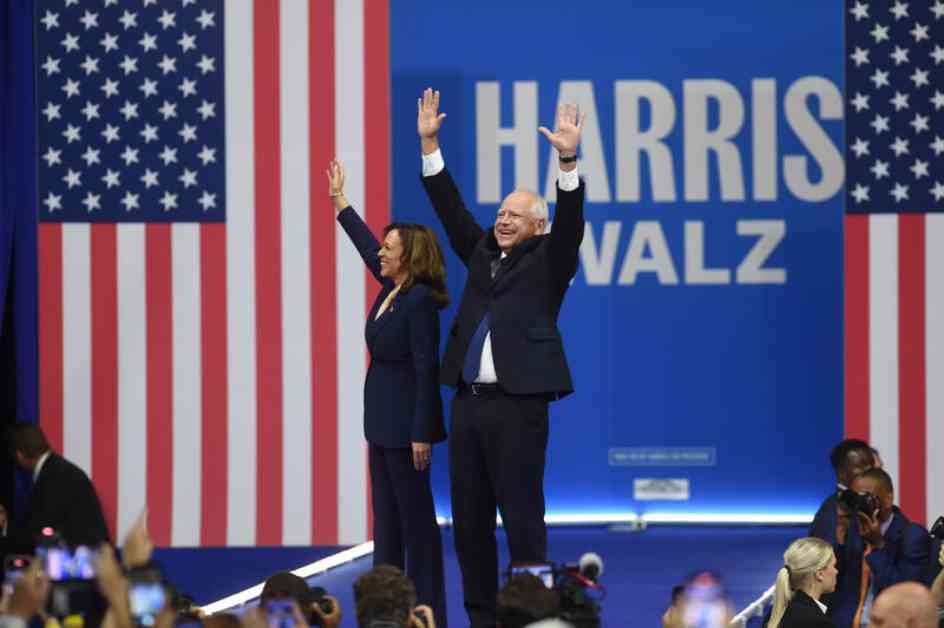Divergent Visions: Harris-Walz vs. Trump-Vance on Public Education
The 2024 presidential campaign is shaping up to be a battleground for competing visions of education in America. Vice President Kamala Harris, in a bold move, announced Minnesota Governor Tim Walz as her running mate, solidifying her commitment to public education and the vital role of teachers in shaping the future of our nation. On the other side, former President Donald Trump and his ally, Senate candidate J.D. Vance, are promoting a narrative that paints public schools as hotbeds of left-wing indoctrination. Let’s delve deeper into the stark differences between these two approaches to education and what they mean for the future of our schools.
Kamala Harris and Tim Walz: Champions of Public Education
Vice President Kamala Harris has long been a vocal advocate for public education. Her choice of Governor Tim Walz as her running mate reinforces her unwavering support for the nation’s schools and educators. In a recent appearance in Philadelphia, Walz echoed Harris’s sentiments, highlighting education as a pathway to the middle class. Walz’s background as a former public school teacher brings a unique perspective to the ticket, emphasizing the critical role of educators in shaping young minds and propelling students towards success.
As governor of Minnesota, Walz has made it a priority to fully fund public schools, advocating for increased resources and support for teachers. His efforts to secure a $2.2 billion boost in school funding demonstrate his commitment to providing quality education for all students, regardless of their background or circumstances. Moreover, Walz’s initiatives, such as the North Star Scholarship Program, aim to expand access to higher education and empower students to pursue their academic aspirations.
Donald Trump and J.D. Vance: A Conspiratorial View of Education
In stark contrast to Harris and Walz, Donald Trump and J.D. Vance espouse a conspiratorial view of education that vilifies public schools as breeding grounds for leftist ideologies. Trump’s rhetoric on education paints a grim picture of schools being overrun by radical left-wing influences, leading him to propose drastic measures to combat what he perceives as a threat to traditional values. Vance, aligning himself with Trump’s stance, has taken aim at critical race theory and other progressive teachings in schools, casting them as harmful to the fabric of American society.
Trump’s proposal to cut funding for programs promoting certain ideologies reflects his desire to reshape the landscape of education in favor of conservative principles. His call for a new credentialing body to certify teachers who uphold patriotic values underscores his vision of an educational system that aligns with his political agenda. While Trump and Vance’s approach may resonate with some segments of the population, it raises concerns about the erosion of academic freedom and the politicization of education.
The Role of Teachers: A Point of Contention
The contrasting views on teachers held by the two tickets further underscore the deep divide in their visions for education. Vice President Harris has consistently highlighted the invaluable contributions of teachers to society, pledging to elevate their status through substantial salary increases and support programs. In contrast, Trump’s disparaging remarks about teachers and their alleged role in indoctrinating students reveal a fundamental misunderstanding of the profession and its impact on shaping future generations.
Governor Walz’s personal connection to the teaching profession gives him a unique perspective on the challenges and rewards of being an educator. His advocacy for teacher empowerment and support reflects a deep appreciation for the vital role teachers play in shaping the minds of young learners. By championing initiatives that prioritize the well-being and professional development of teachers, Walz demonstrates a commitment to fostering a positive and supportive environment for educators to thrive.
As the campaign unfolds, the contrasting visions of education put forth by the two tickets will continue to be a point of contention. While Harris and Walz prioritize investment in public education and teacher support, Trump and Vance advocate for a more restrictive and ideologically driven approach to schooling. The future of education in America hangs in the balance, as voters weigh the implications of these divergent visions on the next generation of students.




















